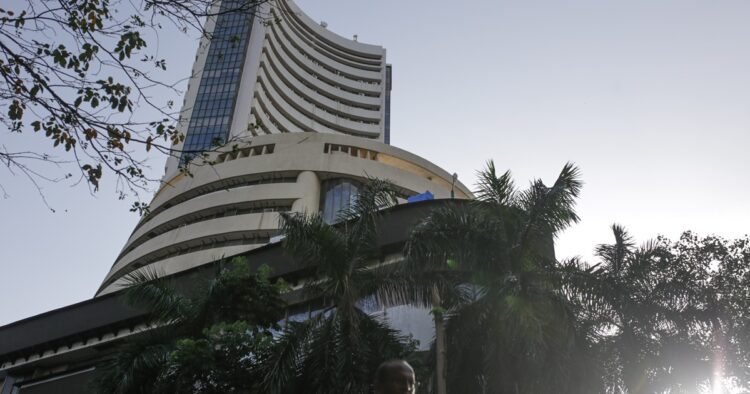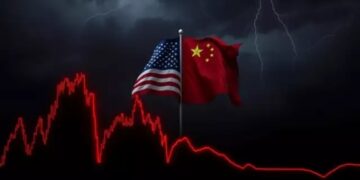In a recent development, Bharat’s stock market has outpaced Hong Kong, securing the fourth position in the global equity market rankings, as reported by Bloomberg. The combined value of shares listed on Bharat exchanges reached an impressive USD 4.33 trillion, slightly edging past Hong Kong’s USD 4.29 trillion, according to data compiled by Bloomberg.
This milestone was achieved on December 5, 2023, when Bharat’s stock market capitalization crossed the USD 4 trillion mark for the first time. Notably, half of this remarkable growth occurred in the past four years, signifying a substantial upward trajectory.
The current top three global stock markets are held by the United States, China, and Japan. Despite occasional turbulence, the past 12 months have been exceptionally favorable for investors in the Bharat stock market. In 2023 alone, both the Sensex and Nifty indices recorded gains of 17-18 percent on a cumulative basis, a significant leap compared to the modest 3-4 percent gains in 2022.
Contrastingly, Hong Kong’s benchmark Hang Seng Index faced a cumulative decline of 32-33 percent over the past year, highlighting a challenging period for the region’s stock market.
Several factors contribute to Bharat’s stock market success. A robust GDP growth forecast, manageable inflation levels, political stability at the central government level, and indications of global central banks concluding their monetary policy tightening have created a positive environment for India. Many agencies have recognized Bharat as the fastest-growing major economy.
Foreign portfolio investors (FPIs) have played a pivotal role in this success story, injecting strong inflows of funds into the Indian stock market. Recent trends show FPIs becoming net buyers in India, propelling benchmark stock indices to reach all-time highs.
India, with its stable political setup and a consumption-driven economy, has positioned itself as an attractive alternative to China. The country’s status as the most populous nation further enhances its appeal, attracting fresh capital from global investors and companies alike.
Simultaneously, Hong Kong has faced challenges, including stringent anti-COVID-19 measures, regulatory crackdowns on corporations, a property-sector crisis, and geopolitical tensions with the West. These factors have collectively diminished China’s appeal as the world’s growth engine and led to a historic slump in Hong Kong. The region has witnessed a decline in new listings, losing its status as one of the world’s busiest venues for initial public offerings (IPOs), according to the news report.

















Comments